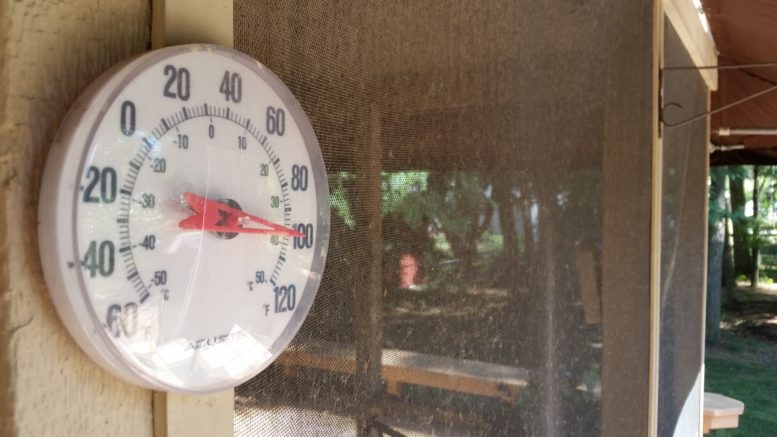By JAN LARSON McLAUGHLIN
BG Independent News
When Bowling Green declares Community Energy Savings Days it doesn’t mean the city is at risk of black or brown outs.
It does mean that the city is asking residents to reduce their energy usage on sweltering hot days during peak hours in order to keep electric rates from spiking.
“Our air conditioning use goes through the roof” on super hot days, said the city’s Sustainability Coordinator Amanda Gamby.
Community Energy Savings Days are called for when demand for electricity is expected to be high. This can occur during very hot or very cold weather, when homes and businesses are using high amounts of electricity at the same time.
The goal of the Community Energy Savings Days isn’t to keep the city’s power grid from failing.
“Our grid isn’t going to go down,” Gamby said.
However, by cutting back on power usage, city electric customers can help keep their rates from increasing since those rates are based partially on the highest use days each year. If customers can conserve during these peak hours, the city can save on transmission and capacity costs in the future.
“It’s to keep the rates down and overall reduce the energy use from an environmental standpoint,” Gamby said. “It’s completely voluntary. Generally, our residents do participate and they do care.”
As a municipal electric system, owned by its citizens and customers, it is up to those same citizens and customers to keep the electric rates for themselves and all other customers of Bowling Green Municipal Utilities as low as possible.
“We don’t have tens of thousands of customers to spread our costs over,” so every little use reduction helps, Gamby said.
So far this summer, only one Community Energy Savings Day has been declared. More are expected as the hotter days of summer arrive, Gamby said.
When those days occur, the city flips switches on its generators, and posts requests to lower electric uses on the city’s Facebook page and Twitter.
When a Community Energy Savings Day is called, residents can help by using less energy between the hours of 2 and 6 p.m. If residents use less energy during these times of peak demand, the city can spread demand more evenly on the network, reduce the cost of providing energy and reduce the amount of greenhouse gases generated.
Residents can take conservation steps such as:
- Shutting off lights when not needed.
- Unplugging small appliances and electric chargers (especially those with small lights).
- Raising the air conditioner thermostat one or two degrees.
- Closing curtains, drapes and blinds.
- Doing laundry and other household chores requiring electricity during hours other than 2-6 p.m.
- Turning off televisions, computers, gaming consoles, and other electronic devices when not being used.

